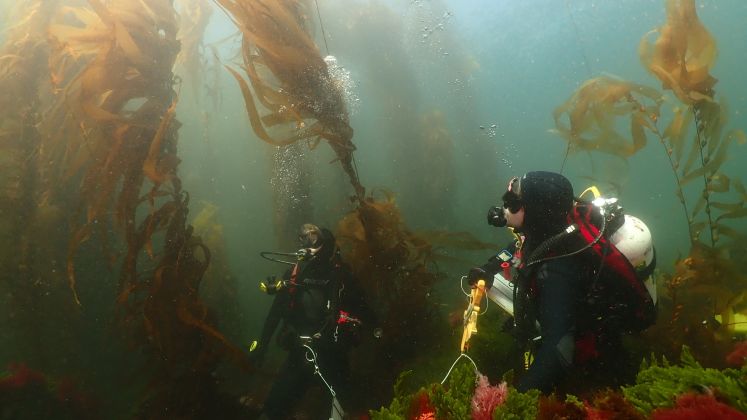Marine scientists will be working with coastal industries, communities and Tasmanian Aboriginal communities on a whole-of-reef-ecosystem restoration project to improve the health of Tasmanian reef ecosystems and bring back giant kelp forests.
The $3.5 million project will include rearing and replanting giant kelp, harvesting grazing sea urchins, weeding out competing seaweed species and rebuilding local lobster populations to keep sea urchin numbers in check.
The project is led by the University of Tasmania’s Institute for Marine and Antarctic Studies (IMAS), in partnership with The Nature Conservancy Australia, Eaglehawk Dive Centre and Sea Forest, and working with Tasmanian Aboriginal communities. Commercial sea urchin and lobster fishers and the Tasmanian Commercial Dive Association will also provide the essential assistance needed to make this project a success.
IMAS ecologist and project leader, Associate Professor Scott Ling, said the project focus is on improving ecological conditions for the threatened giant kelp marine forest community, with reef repair work already underway at five of 20 sites, spanning around 10 hectares of reef area.
To read the full article, click the link below: Working together to safeguard threatened giant kelp forests | University of Tasmania

